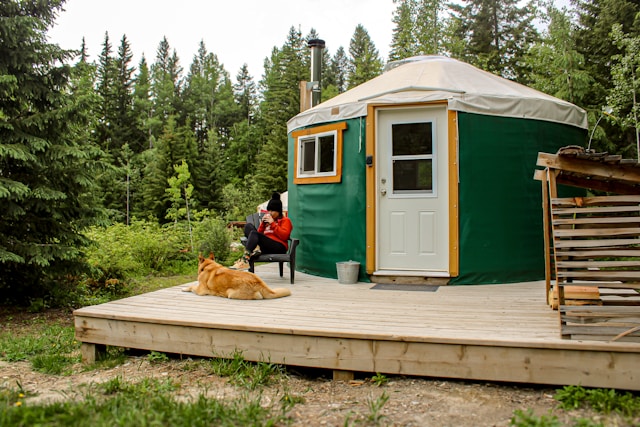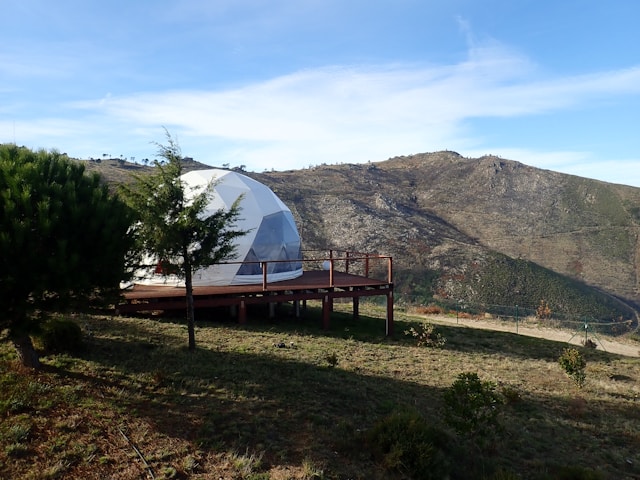When it comes to enjoying the great outdoors, there are more ways than ever to tailor the experience to your preferences. For some, the idea of roughing it in a tent, cooking over a fire, and sleeping under the stars is the ultimate adventure. For others, the thought of a cozy bed, running water, and a real bathroom in a scenic location sounds far more appealing. Enter the ongoing debate: glamping vs camping.
Whether you’re a seasoned nature lover or someone just looking for a weekend getaway, choosing between traditional camping and glamping comes down to what kind of experience you’re after. This article will walk you through the key differences, pros and cons, and help you decide which outdoor adventure is right for you.
What Is Camping?

Traditional camping is all about getting back to basics. It typically involves pitching a tent, cooking meals on a campfire or portable stove, and relying on minimal comforts while immersing yourself in nature. Many campers enjoy the simplicity and authenticity of this approach it’s about disconnecting from daily life and embracing a slower, more primitive way of living, even if only for a few days.
For those who crave a raw, self-sufficient experience, camping can be incredibly rewarding. It’s also one of the most budget-friendly ways to travel, especially if you already own gear. Plus, it opens up access to countless public parks, forests, and remote locations that offer a true escape from urban life.
What Is Glamping?
Glamping, short for “glamorous camping,” combines the best of nature with the comforts of home or sometimes, even luxury accommodations. Think safari-style tents with beds and electricity, yurts with private bathrooms, or modern cabins with Wi-Fi and gourmet meals.
The appeal of glamping is that it allows people to enjoy beautiful outdoor settings without sacrificing comfort. It’s ideal for travelers who might be new to the outdoors, want a romantic retreat, or simply don’t want the hassle of setting up camp. If you’re wondering what is glamping compared to camping, it’s essentially a curated, high-comfort version of the traditional experience.
Glamping has become especially popular for weekend getaways, group retreats, and even destination weddings. With options ranging from eco-resorts to mobile luxury tents, glamping makes nature more accessible to everyone.
Pros and Cons of Camping
Pros:
-
Affordability: Camping is generally inexpensive, especially at public campgrounds or on public lands.
-
Authentic Experience: It offers a chance to truly connect with nature and enjoy peace and quiet.
-
Self-Reliance: It builds outdoor skills like fire-starting, setting up shelter, and cooking with limited tools.
Cons:
-
Weather Risks: Rain, heat, or cold can make camping uncomfortable or even unsafe.
-
Limited Comfort: Sleeping on the ground, dealing with bugs, and using public restrooms aren’t for everyone.
-
Setup Required: Camping demands more planning and packing gear, food, shelter, and emergency supplies.
Pros and Cons of Glamping
Pros:
-
Comfort and Convenience: Beds, climate control, and private bathrooms make the experience far more comfortable.
-
No Setup Needed: Accommodations are pre-arranged, so you can just show up and enjoy.
-
Appeals to All Ages: Ideal for families, couples, and older adults who may not want to “rough it.”
Cons:
-
Higher Cost: Glamping is usually more expensive than camping, sometimes rivaling hotel prices.
-
Less Immersive: You’re in nature, but the luxury elements can distance you from the raw outdoor experience.
-
Limited Locations: Not every natural area offers glamping facilities, and popular sites can book quickly.
Which One Is Right for You?
Choosing between glamping vs camping depends on several personal factors:
-
Experience Level: If you’re new to outdoor adventures or traveling with small children, glamping may be a better starting point.
-
Budget: Camping is the go-to option for travelers on a tight budget or those looking to cut costs.
-
Desired Comfort Level: If sleeping on the ground doesn’t appeal to you, glamping provides a happy medium.
-
Trip Goals: Are you looking to challenge yourself and learn survival skills? Go camping. Want to relax in nature with minimal effort? Glamping might be for you.
-
Travel Companions: Your partner, friends, or family might have different preferences. Glamping can be a good compromise if some in your group prefer comfort.
Here’s a quick checklist to help you decide:
-
Want to build a fire and pitch a tent? → Try traditional camping
-
Prefer soft sheets and electricity in the woods? → Choose glamping
-
On a budget or love minimalism? → Go camping
-
Seeking romance, relaxation, or a touch of luxury? → Go glamping
Conclusion
Both glamping and camping offer incredible ways to enjoy the outdoors but in very different styles. One emphasizes adventure and self-reliance, while the other offers comfort and ease. Neither is better than the other it all comes down to what kind of experience you want.










